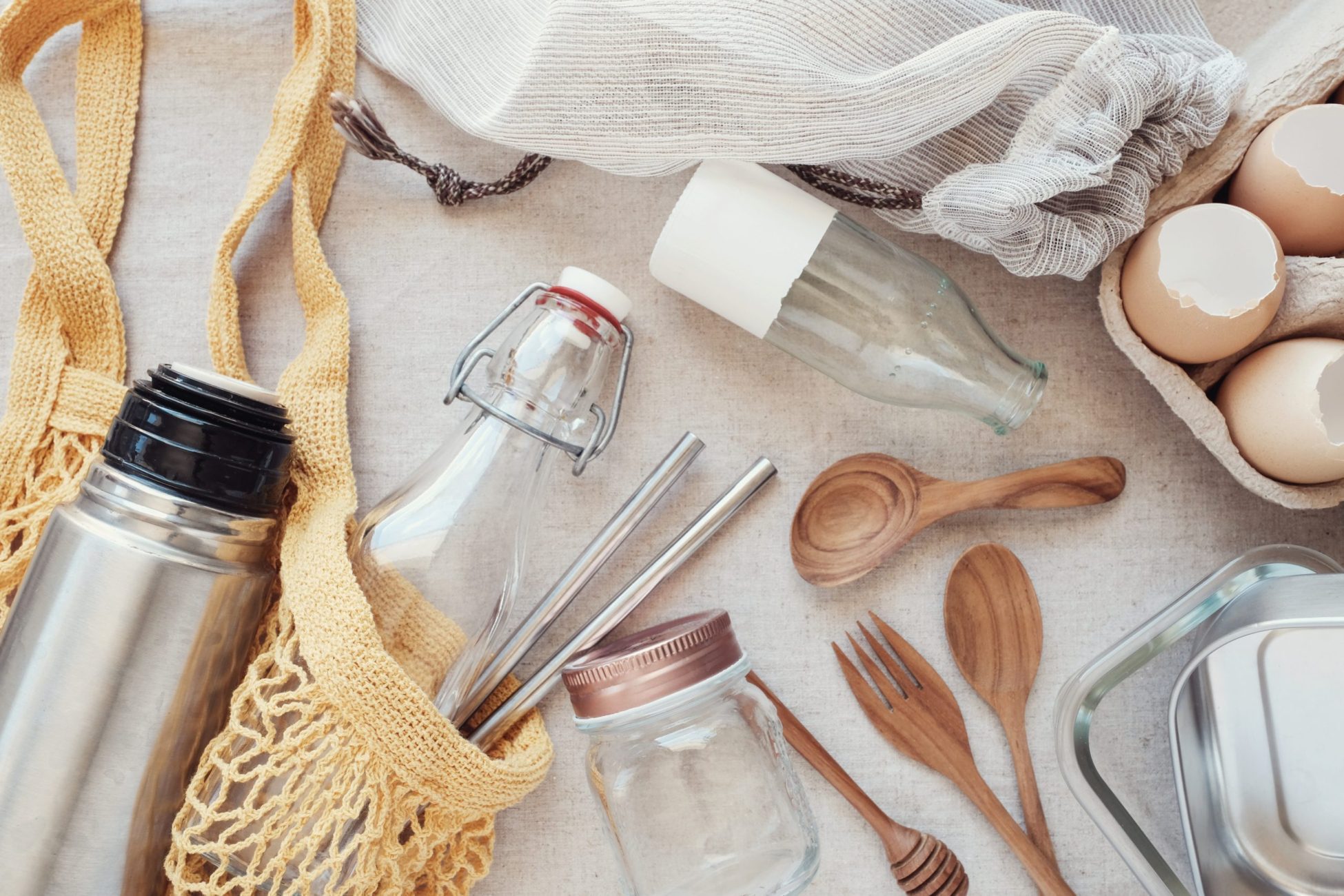

Struggling to find the perfect gift for a perfect mother? Worry not—here is a cheat sheet with the best gifts to surprise her this Mother’s Day.
Read more
7 Eco-Friendly Substitutes to Help You Go Plastic-Free
Disposable plastic waste continues to be one of the world’s worst ecological disasters.
It’s cheap and convenient, which means it is in everything we use: wrapping, clothing, food cups, electronic devices, skincare products, and more. And yet, we only recycle a measly 9% of our annual plastic waste.
If that sounds bad, it gets worse. Recycling only 9% means that 91% of all plastics you use will continue to pollute the earth for at least 20 years, but that could be even half a millennium more.
Luckily, you can make a difference. While you cannot make plastic decompose faster, you can reduce the number of disposable plastic waste in your life. Take a look at 10 of the most convenient eco-friendly substitutes that can make your green life a lot easier.
Did you know that in 2021 we wasted around 600 billion plastic bottles? That equals approximately 25 million tons of plastic waste.
All of that just for a little sip of water.
There is no real benefit in using plastic water bottles beyond convenience, so maybe it’s time to say goodbye to them. Reusable water bottles vary in shape, materials, and size. From stainless steel to glass, you’re bound to find something that suits your lifestyle.
You know them. You love them.
Cloth tote bags have been a growing trend for the last few years, and with good reason—I’d bet that most of the plastic bags you keep inside another plastic bag in that one drawer come from grocery shopping, right?
If you aim to keep that drawer plastic-free, cloth tote bags are the way to go. They’re reusable and come in many materials, shapes, and sizes. Best part? They’re bio-degradable!
Sorry to be the bearer of bad news, but makeup wipes are single-use plastics.
They’re fast and convenient, but nearly all commercially-available brands blend cotton with non-biodegradable plastic fibres, making them a nightmare for landfills. We’re talking about an 11 billion wet wipes kind of nightmare.
Luckily, there’s a solution—cleansing oils and balms. Just one drop or pump, and you can break down the day’s makeup within a minute: no plastic required.
As a bonus? They’re also much better for your skin.
Ideally, you’d ditch disposable cutlery altogether. After all, single-use utensils only contribute further to environmental damage.
But if you don’t have any other option, it’s best to avoid regular plastic spoons, forks, and knives. Instead, try to go for biodegradable and compostable cutlery. Many materials are available, including wood and a special type of compostable bioplastic called polylactic acid.
Did you know that bamboo can grow nearly a meter in a single day? Tough like wood yet incredibly renewable, bamboo may be the material of a sustainable future. And sustainable teeth, as well.
Dentists advise changing your toothbrush every three months, which can quickly build up plastic waste. Using bamboo toothbrushes—made with a 100% biodegradable material—can reduce the number of harmful plastics in landfills or oceans in the long term.
Plastic wrap and aluminium foil are staples in the kitchen and for everyday household necessities, yet they’re also terrible for the environment.
By contrast, beeswax wrap is environmentally friendly since it is made from biodegradable and compostable materials. It is also reusable, so you can extend its lifespan much longer than single-use plastics!
Keep in mind that while bees are not harmed in any way in the process of collecting beeswax, this is not a vegan product since it is an animal byproduct.
Gone are the days when the mere idea of washing your hair with a bar would make your mane brittle and dull. Nowadays, shampoo and conditioner bars are nurturing options for your hair that are as good as the bottled options.
Of course, without the whole “bottle” part. And that is a good thing, considering that the world bought 481.6 billion bottles in 2018 alone.
These sustainable and eco-friendly alternatives may not be the solution. Still, they’re certainly a great first step towards reducing your carbon footprint and driving positive change around you.
But this list is far from complete—there are many more items you can use instead of harmful plastics. Share them with the people around you so that we can all make a difference!